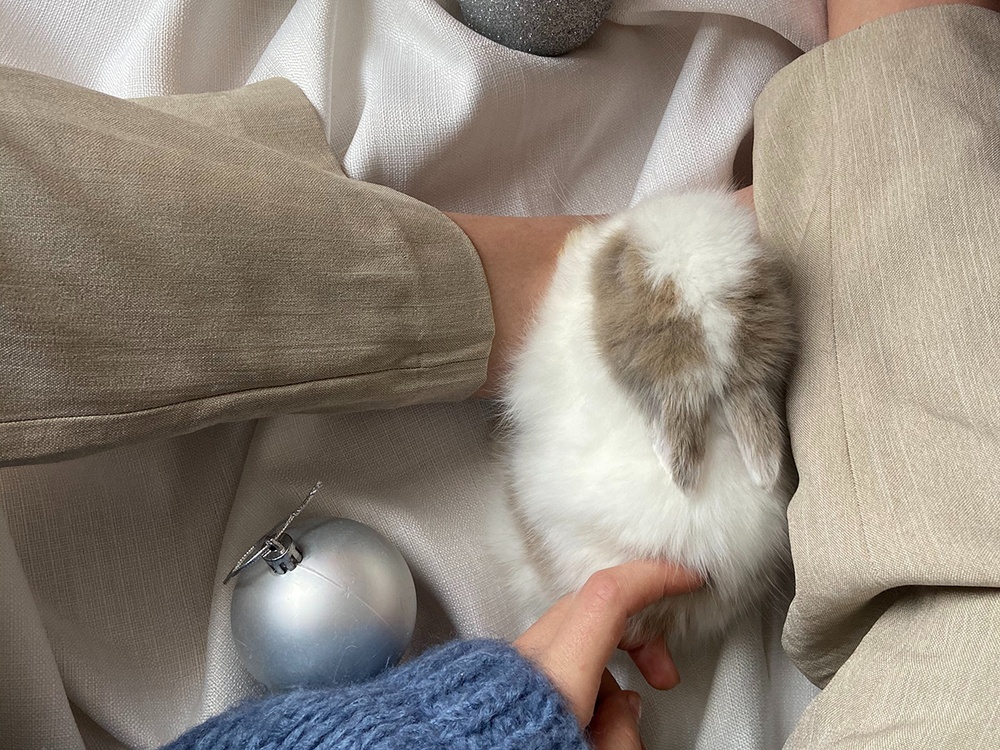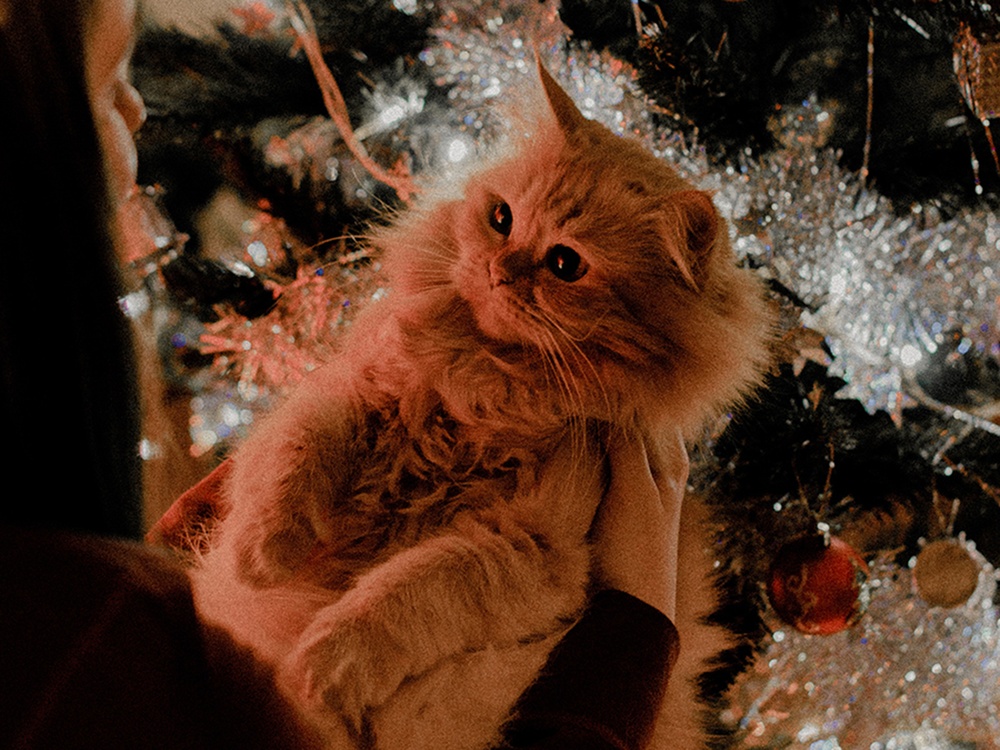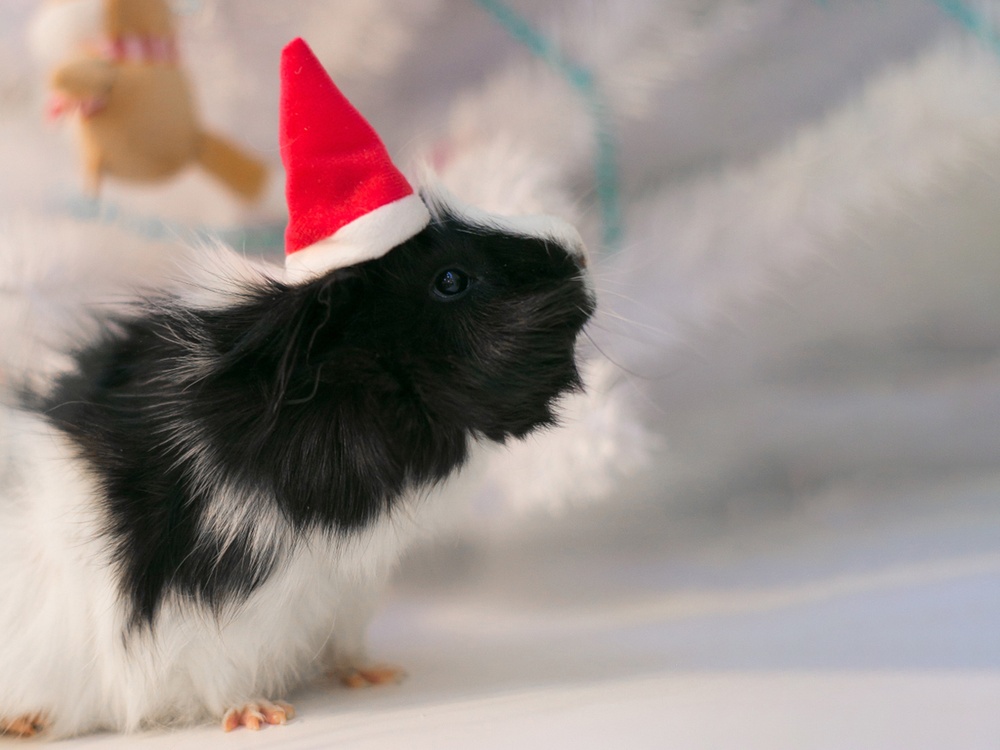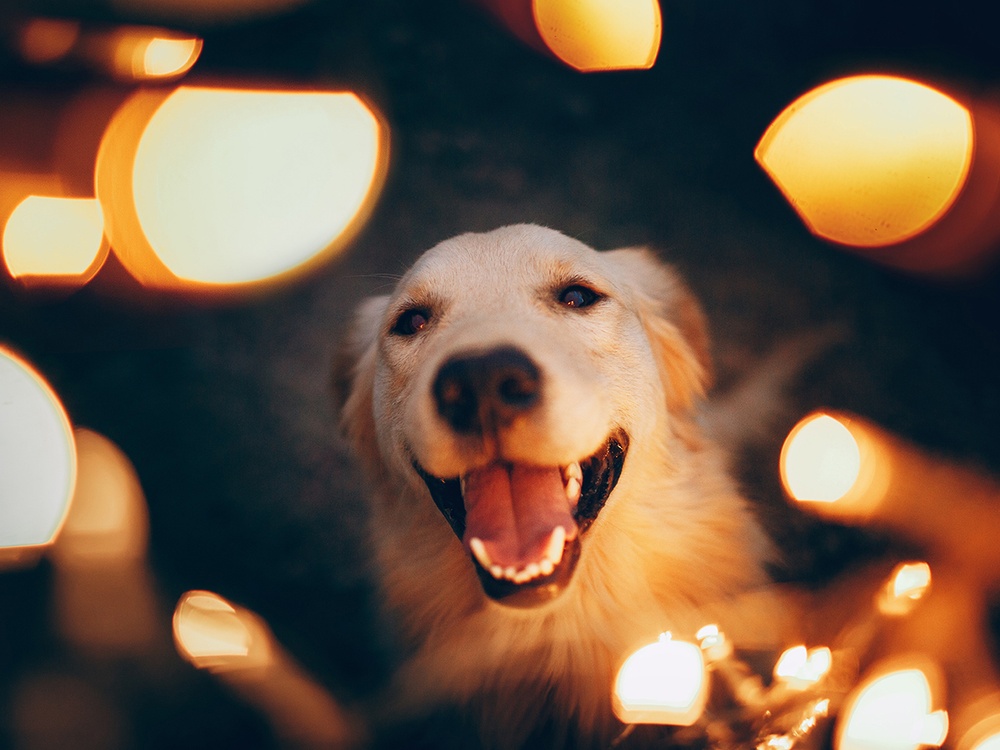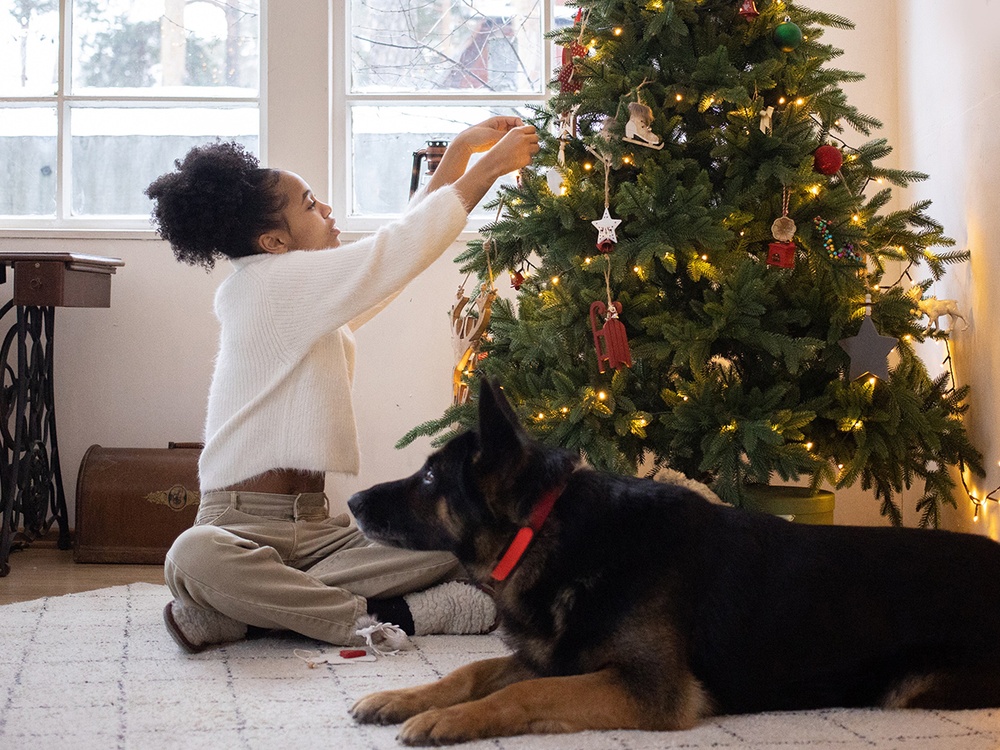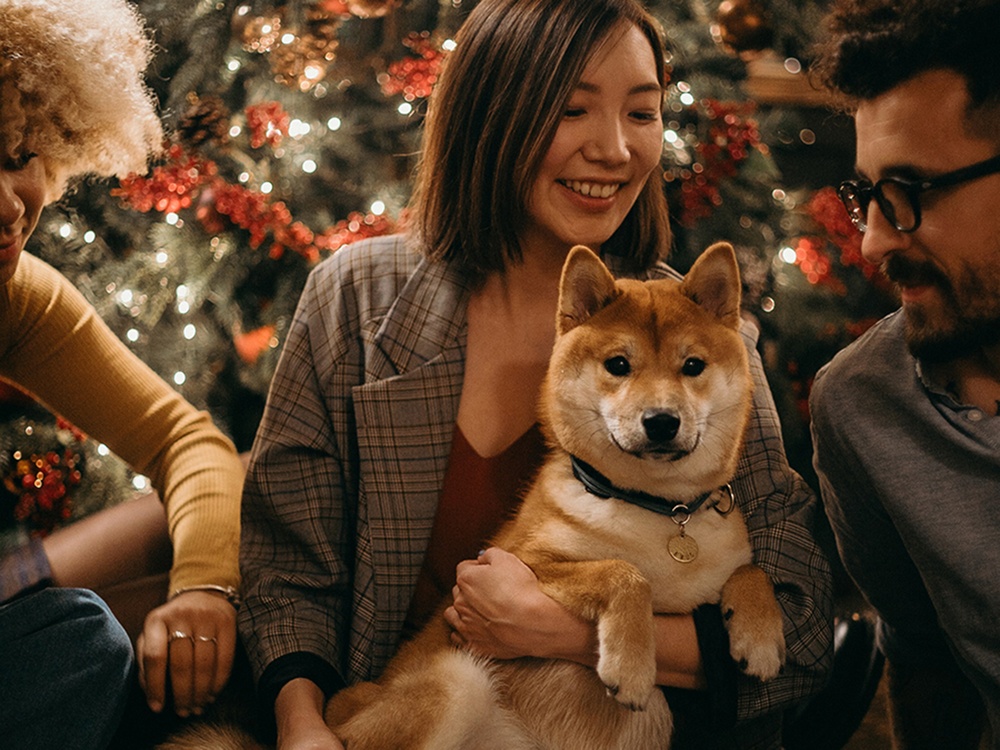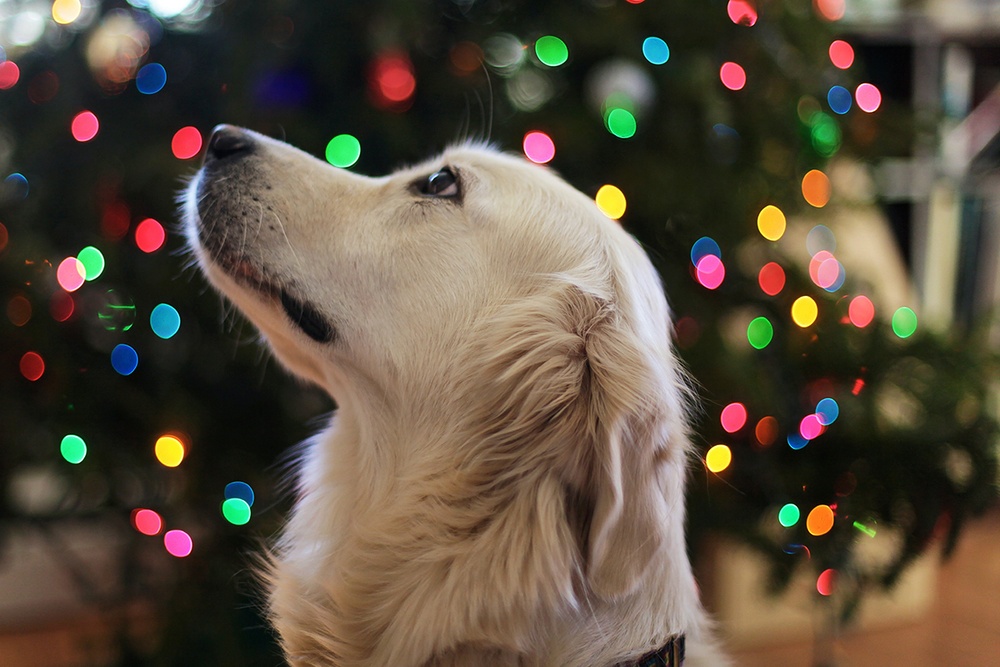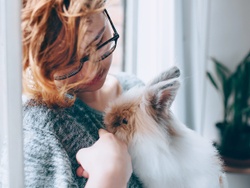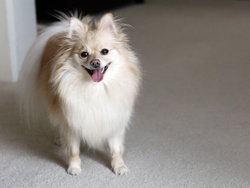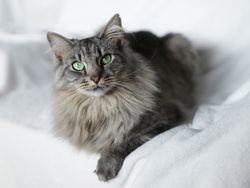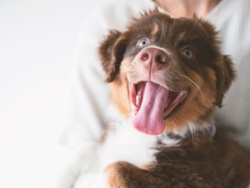How To Plan a Pet-Safe Holiday Party
Holiday parties full of friends, family, and festivities are one of the best parts of the holiday season. But what do you do with your pets when you have a holiday party?
A normally quiet house is now full of new (and noisy) people. Glittering holiday decor (that looks a lot like pet toys) is covering every surface. Tables are piled with holiday food favorites (that may be toxic to pets). You forgot to fix the front gate that won’t latch just right.
There are so many ways for our beloved pets to get into danger during the holidays.
Planning a pet-safe holiday party is important to ensure your holidays are full of cheer, rather than a trip to the pet emergency room.
How Do You Keep Your Pets Safe During A Holiday Party?
Hosting a holiday party is a big ordeal, and you simply cannot keep an eye on your pets at all times. The best way to keep your pets safe during the holidays is to plan ahead.
Tell your guests ahead of time that you have pets. Some guests may have allergies or medical reasons to be aware of pets in your home so they can prepare for their specific needs.
An exciting holiday party may be a great place for people to meet new friends, but it is not the place for new introductions between pets.
If your guests plan to bring their own pet that your pet has never met, plan to spend time before the party on a few playdates. This is to introduce the pets to each other and give them the opportunity to acclimate in a less stressful environment.
Keep a close watch on both pets at all times and give each pet a place to retreat to if needed. The stress of a holiday party can strain a friendly friendship between pets and result in injuries.
Know the signs of a pet medical emergency, and prepare now in case you need to act fast.
How To Prepare For An Emergency Vet Visit
It’s a great idea to always have these important phone numbers and addresses on your phone so they are easily available in case of a possible pet emergency.
- Your primary veterinarian clinic's phone number and address
- Your closest 24/7 emergency veterinary clinic phone number and address
- Your Pet Health Insurance information
- Log In info for your Online Pet Veterinarian provider
- ASPCA Poison Control Hotline (888-426-4435)
- Pet Poison Helpline (855-764-7661)
Are Parties Stressful For Pets?
Just like humans, some pets are more party animals, while others prefer a quiet evening curled up on the sofa. Knowing your individual pet’s comfort level around new people and in groups is the key to making holiday parties as safe and stress-free as possible.
Pets who are typically more nervous around new people should not be forced to socialize at holiday parties.
Social pets may become overly excited by an ever-ringing doorbell or the abundance of new humans in their home. Introduce your pet slowly and keep the welcomes more calm.
If your pet becomes over-excited, guide them to a quiet space (like a crate or that spare room) to calm themselves and relax.
Even the most social pets can become overwhelmed and nervous by the hustle and bustle of holiday parties.
Tips for Keeping Your Pet Safe During Parties
Advocate For Your Pet
Unfortunately, your pets can’t speak for themselves. They look to you to keep them safe. As their pet parent, you can explain to guests the best ways to interact with your pet, how they like to receive attention, and what to avoid.
Keep an eye on your pet throughout the party to see how they are tolerating all the extra attention that comes with a holiday party and make sure they get a break if needed.
Create A Pets-Only Space
Cats tend to shy away from crowds of people and loud noises, but many dogs can become overwhelmed by a holiday party too. Giving your pet their own quiet space helps them to feel safe rather than nervous or afraid.
Reserve a pets-only space in a quiet area like a spare room. A room with a door is ideal, but a kennel tucked behind some furniture, or a cozy corner works well too.
The space should include your pet’s bed, a few enrichment or favorite toys, a litterbox for cats, and of course, food and fresh water. You can turn on a TV or play white noise to help your pet relax.
Explain to your visitors that this quiet area is off-limits and not to disturb your pet. You can even make a Do Not Disturb note for the door. What’s important is your pet has a safe haven to relax when overwhelmed.
Keep Common Holiday Pet Hazards Out Of Reach
Some of the most common holiday food, decor, and plants are dangerous to your pets.
Keep all human food out of reach of pets, and keep trash bins securely closed. A sparkly ribbon from a gift is just as tempting (and dangerous) as a half-eaten plate.
Ask your guests not to feed your pets any food. While your pet will likely be performing an award-winning rendition of cat-on-the-brink-of-starvation or the most convincing puppy-dog-eyes, it’s best to have a no-sharing policy.
Take extra care to keep pets away from any alcohol and marijuana. Any pet that may have ingested alcohol or marijuana needs to have their vitals evaluated by a veterinarian right away.
Even a rogue raisin or bite of cake could mean an early end to the party while you rush to the pet emergency room.
How To Avoid Common Holiday Pet Hazards
Watch Small Toys And Batteries
While fun for children and adults alike, small toys and loose batteries both pose major risks to our pets. A board game piece or action figure accessory can make for an impromptu toy for your pet, potentially resulting in broken teeth, cuts, internal damage, and worse.
Batteries are detrimental because they are often not missed and extremely dangerous to pets. Common household batteries are corrosive when punctured (like by being chewed on), leading to deep ulceration of all the areas it comes into contact with throughout your pet's digestive system.
Disc and button batteries allow an electric current to contact the gastrointestinal tract directly. Potentially causing severe damage to the esophagus, stomach, or small intestine.
Keep pets in a separate area when opening gifts if needed. Monitor closely anytime pets and children are playing together with small toys. Button batteries are often found in small toys, remotes, watches, and greeting cards.
If your pet ingests a battery of any type it is an emergency. Immediately take them to the nearest emergency veterinary hospital.
When Should I Bring My Pet To The Emergency Vet?
Store Purses, Bags, And Guests Coats
Pets are naturally curious creatures who love to sniff out new and interesting items on an instinctual level. Usually, this means inspecting a new box from your latest online shopping. At a holiday party, the stack of coats on the guest bed or the pile of purses on the foyer bench can be an appealing and dangerous temptation.
Bags and coat pockets often contain pet-unsafe items like medications, sugar-free candies, and chocolates. Which could lead to a medical emergency if ingested by your pet.
Prevent potential poisoning, choking, or internal blockages from your pet eating something dangerous by keeping coats, bags, and purses out of reach. A spare closet or bedroom with a closed door are great options.
Monitor Exterior Doors And Escape Zones
When your guests are coming and going, watch your pets extra closely. Many pets accidentally escape during the holidays through an open door while a guest is lingering or through a gate that didn’t quite get properly closed.
People without pets may not even think of the possibility of a lingering goodbye turning into a pet on the loose.
The safest solution is to keep your pets in another room while guests are arriving and leaving. If that isn’t possible, there are other options. Simply remind your guests that you have an escape artist in the home and to please close doors quickly. Or place a sign at exterior doors reminding guests to firmly close and latch all doors and gates.
Before your holiday season ramps up, double-check the condition of your pet’s collars and that the info on their ID tags is accurate. If your pets are microchipped, confirm that their microchip information is updated.
Prioritize Pet Safety
Maintain Routines
Our pets are creatures of habit. All the added activities and visitors during the holidays can throw your pet for a loop. Maintain your pet's daily routines as much as possible. Don’t be tempted to skip your usual walk because that pile of presents needs to be wrapped.
On a note of exercising your pet, they are likely to be calmer if given the opportunity to work out some mental and physical energy before the party begins.
A long walk full of sniffing interesting smells for dogs and a play session or treat puzzle for cats (and other small animals) will help work out any baseline jitters. This gives your pet more of a threshold to handle the excitement of a party.
Size Pet Holiday Costumes And Sweaters
All pet clothing should fit loosely enough that your pet can move naturally and breathe easily. Overly restrictive clothing or costumes can create anxiety and even health issues in pets. Avoid outfits with dangling ribbons, bows, or other pieces that could be torn off and eaten.
If your pet doesn’t enjoy or isn’t used to wearing clothes or costumes, don’t force them to, especially during the added stress of the holidays.
Know Their Limits
If your pet is overly stressed by holiday visitors, consult your family veterinarian about possible solutions. It may be best to offer anti-anxiety meds to your pet, board your pet, or keep your pet with a trusted pet sitter for the night.
Holiday Pet Safety Checklist
Include a pet safety checklist in your holiday party planning to keep your pets safe:
- Plan ahead For Pet Emergencies
- Advocate For Your Pet
- Create A Pet-Safe Place
- Check ID Tags
- Avoid Common Holiday Pet Hazards
- Prevent Escape
- Maintain Routines
- Know Their Limits
Following a few pet-safe party tips can make your holiday party more pet friendly; giving you and your furry family member peace of mind to enjoy the holidays.
Fact checked by Veterinarian

Dr. Paula Simons is an Emergency and Critical Care veterinary resident on her way to becoming a veterinary criticalist. She is originally from Philadelphia, Pennsylvania, and completed her veterinary training in Ontario, Canada, at Ontario Veterinary College. Dr. Paula Simons has a particular interest in critical care nutrition, trauma, and pain management. She enjoys the management of surgical patients and troubleshooting complex cases. Additionally, she is a huge advocate for her patients and ensuring their comfort. She has two cats named Moo and Kal, whom she loves dearly. More About Us
